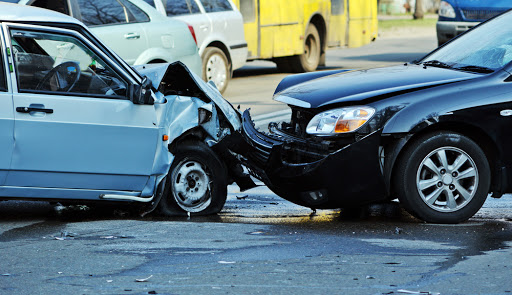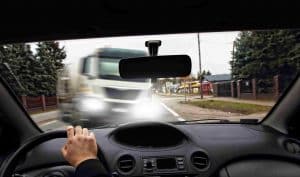If you have recently been involved in an auto accident and are looking for some general guidance on the Claims Process, this article helps break down some of the different issues and the different types of claims you may be facing.
Determining Fault
In many cases, it is clear who is at fault for an accident. Often the at-fault party will admit the accident was his/her fault and his/her insurance will accept liability.
Police frequently respond to accidents and create accident reports which detail the crash, include diagrams and summaries of the statements from the parties involved and witnesses. Police will usually assign blame in these reports and may issue citations for violations of traffic rules.
In some cases, fault is disputed. Unfortunately, in many of the clearest cases the at-fault driver will just refuse to acknowledge negligence. It is not unusual for someone to proclaim that because he/she has been accident free for many years and is familiar with the area where the incident occurred, that the accident just could not be their fault even when all evidence suggests this person is at fault. When the at-fault party denies fault to his insurance company, it will delay the processing of those claims for the victim. When the at-fault party denies fault, his insurance company cannot pay claims until a more complete investigation is performed. It may have to wait for an accident report and need time to obtain witness statements before agreeing to pay the victim’s claims.
Sometimes we just cannot determine who was at fault, this is particularly true when both parties are denying fault and there are no independent witnesses to verify what occurred.
Property Damage
When your vehicle is damaged by someone else, you can typically put that claim through the at-fault driver’s insurance if that insurance company has accepted liability. In general, if your vehicle was damaged, the at-fault driver’s insurance will pay the costs to repair your vehicle unless the cost of those repairs would exceed the value the vehicle held just prior to the crash. In other words, if the vehicle was worth $20,000 prior to the crash and the cost of the repairs will be $10,000, the insurance company should pay the $10,000 to repair the vehicle. If, however, it would cost $25,000 to repair the vehicle, the vehicle will be deemed “totaled,” you will sign over the vehicle to the insurance company, and it will pay the $20,000 that the vehicle was worth just prior to the crash. This assumes the other driver had sufficient coverage on his policy. It is not uncommon that the at-fault party may have state minimum coverage and there may not be enough insurance coverage available to fully compensate the victim for his property damage claims.
In the event liability is being disputed, or you determine the amount of your damages exceed the other party’s coverage limit, you may want to put the claim for the vehicle damages through your insurance company if you have Collision coverage. Collision is an optional coverage and will cover the costs to repair your vehicle (or pay you if the vehicle is totaled). If the other party’s insurance is dragging its feet, your claim is being delayed because the other party will not admit fault, or you determine the other party has limited insurance coverage, it may be best to put the property damage claim through your insurance. Your insurance company will then not only try to get its money back from the at-fault driver’s insurance, it will also try to get your deductible back for you.
Medical Bills
If you sustained injuries in the accident, your medical bills need to get paid. Many states have a “no-fault” system for medical bills. In other words, we do not look to see who is at fault to determine who is responsible for medical bills. In some states, like Pennsylvania, your own auto insurance covers your medical bills. Even if your car was not involved in the crash, we would still look first to your own insurance. If you do not own a vehicle, we may be looking at the auto insurance policy covering a resident relative or the vehicle you were occupying at the time of the crash. In other states, we may look first to the insurance on the vehicle you were occupying to pay bills.
Most auto policies have a medical coverage limit. If you exhaust that coverage, your bills may then flow to your health insurance.
Bodily Injury Claims
In many circumstances, a victim can pursue a Bodily Injury claim. Under the “Bodily Injury” umbrella, you generally can make claims for wage loss, medical bills, and pain and suffering.
In certain states you can claim medical expenses only if those expenses were out of pocket or paid by a health plan that has a right to get reimbursed out of your settlement. In other states, you can make claims for all medical expenses even if you have no out of pockets and no health plan has a right of reimbursement.
In order to make wage loss claims, you typically need a note (often referred to as a “disability note”) from a doctor indicating you are unable to work. You usually also need some way to verify your earnings. This can often be accomplished by getting a wage verification form completed by your employer to confirm the days missed and your wage or rate of pay. Wage loss claims can be difficult to prove with some clients who are self-employed. They often fail to get a doctor’s note (since they have no employer to give it to) and verifying earnings can also be more difficult.
In some states, every victim has a right to pursue claims for pain and suffering. In other states, victims are unable to recover for pain and suffering unless there is some sort of permanent or serious injury. In other states whether you can make a claim for pain and suffering will determine on the type of insurance coverage your purchased, whether you paid more to keep your rights to be compensated, or whether you gave up that right in exchange for paying lower rates.
The value of bodily injury claims can vary significantly. For the most part, the value is tied to the nature of the injury you suffered and the amount of medical treatment you need to get better.
Free Consultations
At Mooney Law, we always offer free consultations on auto accidents and injury claims. Every case is different and this guide gives you a general idea of the types of claims that can be made. But it is always wise to contact an attorney for a free consultation who can get through the specifics in your case and guide you as to the best way to make claims and things you can be doing to make your case stronger. Call us today to schedule your free consultation at 717-200-HELP or 717-632-4656. You can also email us at info@mooney4law.com. For more information visit us on the web.



